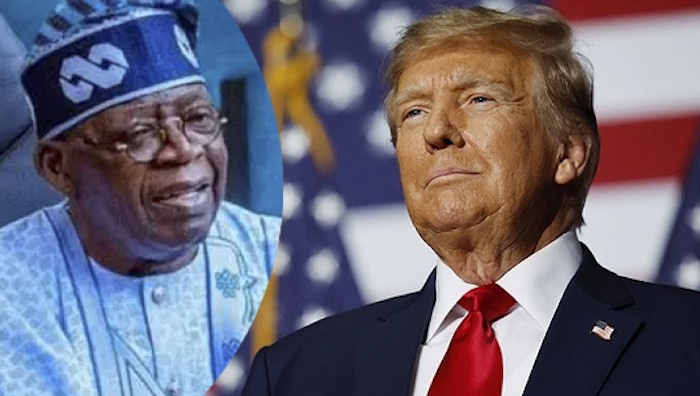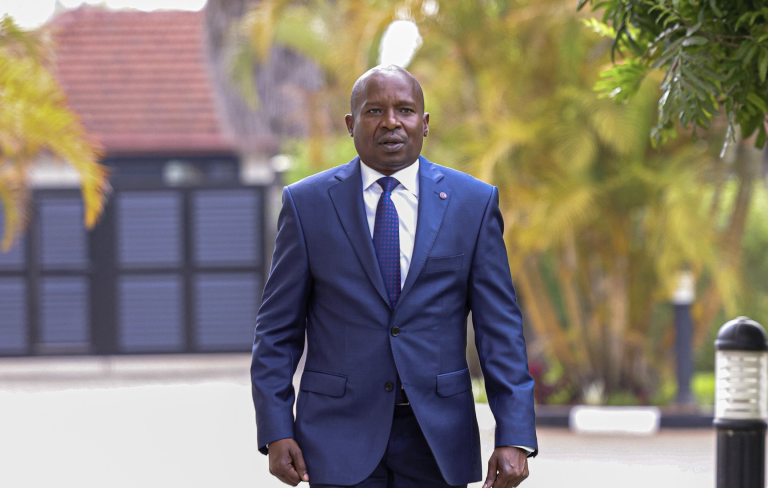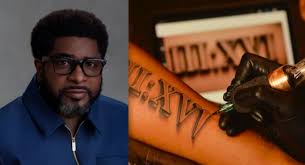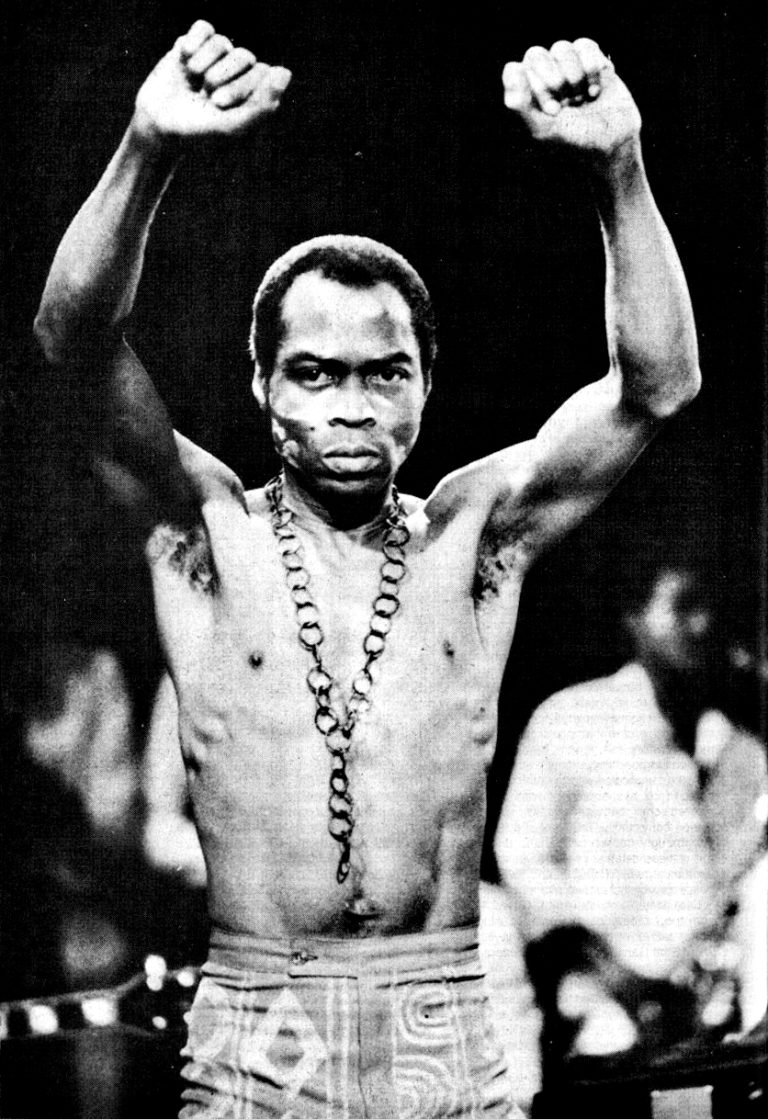
The federal government on Wednesday doubled down on its position on President Donald Trump’s threat of a military intervention by the US government, maintaining that the notion of Christian genocide in Nigeria is based on faulty data.
Besides, the Minister of Foreign Affairs, Yusuf Tuggar, on Wednesday said no one should be deceived that state sponsored religious persecution exists in Nigeria, insisting that the country remains a good example of religious plurality and democratic endurance.
Also, Minister of Aviation and Aerospace Development, Festus Keyamo (SAN), who is also a Fellow of the Chartered Institute of Arbitrators of the United Kingdom, on Wednesday weighed in on the ongoing stand-off between Nigeria and the US, maintaining that President Bola Tinubu, though a Muslim, remains a known ‘moderate’.
On his X handle, Keyamo, who tagged the US President, Donald Trump in his post, stated that Tinubu’s wife is a pastor of one of the biggest Pentecostal Churches in Nigeria and most of his children are practicing Christians.
As governor of Lagos State, Keyamo stated that Tinubu regularly invited Christian pastors for prayers and worship sessions at the Government House. “He will be the last person to either adopt the killing of Christians as a State Policy, or condone such acts or be complicit in them,” Keyamo pointed out.
In the same vein, human rights lawyer and Senior Advocate of Nigeria (SAN), Femi Falana, has accused Trump of lying to the world with his claim that thousands of Christians are being killed in Nigeria.
Falana described Trump’s comments as a baseless and divisive narrative that misrepresents Nigeria’s security crisis as a religious war, insisting that the killings across the country are largely driven by criminality, banditry, and ransom-seeking, not by faith.
Trump recently announced that he was designating Nigeria as a Country of Particular Concern (CPC), a label for nations where violations of religious freedom are judged to be systematic, ongoing, and severe. However, Nigeria has continued to insist that the position of the US remains far from the truth.
The federal government on Wednesday rebutted the US’ claim of inertia against terrorist groups responsible for alleged genocide in some parts of the country. It berated the US administration for hinging its narrative on faulty data.
The Minister of Information and National Orientation, Mohammed Idris, asserted this position on Wednesday at a media briefing on the US government’s designation of Nigeria as a Country of Particular Concern and the threat by Trump to send the military to intervene in the country.
The minister stated that the government was also apprised of the level of anxiety created by the tagging of the country as a country of particular concern by Trump following what he said was a wrong perception and misrepresentation of the security challenges in the country.
He said the federal government had always recognised the security challenges that had confronted the country since 2009 with the advent of Boko Haram terrorists. He also referenced the report by the Global Terrorism Index in March which indicated that terrorist attacks were at their lowest in over a decade in Nigeria.
“Let me state from the outset that the Government and people of the Federal Republic of Nigeria have taken note of the position of the Government of the United States of America on Nigeria over alleged violations of religious freedom.
“Nigeria faces longstanding security challenges that have impacted Christians and Muslims alike, and we mourn every loss of life—knowing that even a single loss of life is one too many,” Idris said.
He also reiterated that Tinubu was more than determined to confront and end these security challenges. The minister said that since May 2023, security agencies had neutralised more than 13,500 terrorists through sustained operations and arrested over 17,000 suspects, who were now undergoing interrogation or prosecution for various offences, while more than 9,800 victims abducted by terrorist elements, including women and children, had been rescued and reintegrated.
Idris explained: “It is important to restate that the menace of terrorism in Nigeria does not exclusively target any religious or ethnic group. As in many parts of the world, extremism is mindless, blind to religion, tribe, or class. It is a war against all peace-loving Nigerians and against the unity and progress of our great nation.
“Therefore, any narrative suggesting that the Nigerian State is failing to take action against religious attacks is based on misinformation or faulty data. Several leading personnel of the very dedicated Armed Forces of Nigeria and the country’s intelligence agencies are Christians, working and succeeding alongside their Muslim colleagues in the fight against extremists and criminals waging war against our country and values.
“Also, Nigeria’s security challenge cannot be fully understood without acknowledging the volatile security situation in the Sahel region—and complicating factors such as the collapse of Libya over a decade ago, flooding the region with terrorist elements, extremist groups, and illegal weapons. The regional dimension underscores why Nigeria continues to champion greater cooperation within ECOWAS, the African Union, and international partners – including the United States – to stabilise the Sahel and cut off the transnational lifelines of terrorism.
“The other issue is the socio-economic dimension of the conflict in the North-Central, especially in Plateau and Benue State, exacerbated by age-long farmers-herders violent clashes made worse by climate change and desertification”.
He stated that the recent change of Service Chiefs and the subsequent realignment within the Armed Forces and security agencies was a strategic overhaul that reflected President Tinubu’s determination to reinvigorate Nigeria’s security architecture and infuse fresh energy, innovation, and accountability into the country’s defence and intelligence systems.
He asserted that the military and other security agencies were winning the war on terrorism, stressing that the results in the past years particularly in the last two years of President Tinubu’s leadership were remarkable.
“We have made stringent efforts in curtailing access to small arms and light weapons by non-state actors. Security agencies recovered and destroyed over 5,000 military-grade rifles and intercepted over 20 gun-running networks in the past months.
“The administration has made multi-million-dollar investments in modernised equipment for our security agencies and has increased the defence and security budget. The President has always given the military his absolute support, and I assure you that there is the political will to remove the last vestiges of this menace from our country.
“In the past eight months, the Nigerian military neutralised over 592 terrorists in Borno State alone. Over 13,500 terrorists and armed criminals have been neutralised. More than 17,000 arrests were made. Over 11,200 hostages were freed.
“More importantly, over 124,000 insurgents and their families surrendered, handing over more than 11,000 weapons. In the North-West, especially Zamfara and Kaduna, 11,250 hostages have been freed, and some of the terror leaders —Ali Kachala, Boderi, Halilu Sububu — have been neutralized. In August, the military intercepted and killed, in one fell swoop, over 400 armed bandits who had converged to attack a village in Zamfara”.
The minister also explained that terror attacks had been reduced by almost 80 per cent in the South-East, through the joint effort of the security agencies.
In his remarks, the Minister of Solid Minerals, Dele Alake, said the Tinubu administration was not making an emotional reaction to the insecurity issues in the country, which he said started in 2023.
He stated that given the plethora of actions taken in the last three years, the problem would have eased and the country would not be where it is if those actions were taken in the last 10 years.
He also charged the media to cease perpetuating a wrong narrative about terrorists killing members of the security agencies, like the military with screaming headlines.
The Minister of Foreign Affairs, Tuggar, on Wednesday said no one should be deceived that state sponsored religious persecution exists in Nigeria, insisting that the country remains a good example of religious plurality and democratic endurance.
Tuggar, who briefed the diplomatic community in Abuja over the current situation in the country, said the issue of national security remains top priority of President Bola Tinubu’s administration.
Represented by the Permanent Secretary, Ministry of Foreign Affairs, Dunoma Ahmed, Tuggar who is currently in Germany, said it was inaccurate to characterise Nigeria’s security challenges as manifestations of state-sanctioned religious intolerance.
He decried the claims of religious genocide against Christians in the country, stating that it was unfounded. He also assured members of the diplomatic community that the government is doing everything possible to contain the threat of terrorism as currently seen in the country.
Tuggar said: “National security remains a top priority for the Tinubu administration, which has adopted a comprehensive approach combining military strength, intelligence, diplomacy, and community engagement. Sustained operations such as Operation Hadin Kai and Operation Lake Sanity have degraded Boko Haram and ISWAP, reclaimed vast territories and facilitated the return of millions of displaced persons.
“Advanced surveillance technologies are being deployed to combat banditry and kidnapping, while community-based peace building and the National Early Warning and Response System (NEWS) enhance conflict prevention. Civil-military cooperation has strengthened trust, improved intelligence gathering, and reduced the recruitment of extremists.
“Nigeria remains a global exemplar of religious plurality and democratic endurance. The 1999 Constitution guarantees complete freedom of thought, conscience, and religion and prohibits the adoption of any state religion. The Nigerian state is secular in both structure and function; policies and institutions operate without religious bias, ensuring that Christians and Muslims hold leadership positions across all levels.
“ Recent external claims suggesting systemic religious persecution in Nigeria are unfounded. The recent designation of Nigeria as a Country of Particular Concern (CPC) based on speculations of religious persecution is fundamentally misinformed.
“It misrepresents Nigeria’s secular constitutional order and its record in protecting religious freedom. Nigeria’s demographic balance, approximately equal Christian and Muslim populations, its interwoven communities, and its functioning multi- religious democracy stand as clear evidence of our coexistence.”
He added that Nigeria’s judiciary has consistently demonstrated its independence, protecting freedom of expression and religion. The state, he said, continues to wage a comprehensive counter-terrorism campaign against groups that target Nigerians of all faiths.
“ It is therefore inaccurate to characterise Nigeria’s complex security challenges as manifestations of state- sanctioned religious intolerance. Nigeria’s national legal framework contains no offence of blasphemy.
“The existing public-order laws are religion-neutral and protect all communities equally from incitement to violence. Sharia laws, limited to some northern states, apply only to Muslims and remain under the oversight of the secular judiciary. Christian and Muslim institutions operate freely, promoting peaceful coexistence. Interfaith harmony is sustained through institutions such as the Nigeria Inter-Religious Council (NIREC), the Christian Association of Nigeria (CAN) and the Supreme Council for Islamic Affairs (NSCIA).
According to him, Nigeria has consistently demonstrated its openness to dialogue and cooperation, and constructive engagement, which should remain the standard in the engagement between and among sovereign states in the international system.
“While Nigeria notes with grave concern the unfounded and disparaging rhetoric over the security situation in the country, it is our firm conviction that the international community will continue on the path of mutual respect and cooperation that fosters peace, prosperity, and harmony,” he stressed.
For his part, senior lawyer, Keyamo, emphasised that having been appointed by the present President of Nigeria, Tinubu, as his Minister of Aviation and Aerospace Development, along with other Christians, because of his strong Christian background and ethical pedigree, it would have been most unconscionable for him to associate with – let alone accept to serve or continue to serve – a government if truly there is any scintilla of truth in the assertion that Christians are specifically targeted in Nigeria for persecution, killings or harassment on account of their faith.
“It is simply not true. Just like the US and many countries in the world, we have faced our own fair share of societal violence; ours has been perpetrated by deadly groups known as Boko Haram (now seriously decimated), herdsmen, and cattle rustlers.
“These decades-old problems were inherited by our President who has made great progress in the fight against these insurgents. In fact, most of the security Chiefs appointed by him are Christians, so it would be unthinkable to imagine them being complicit in the killing of fellow Christians in Nigeria.
“President Bola Ahmed Tinubu of Nigeria, though a Muslim, is a known ‘moderate’, whose wife is a Pastor of one of the biggest Pentecostal Churches in Nigeria and most of his children are practising Christians. When he was Governor of Lagos State, he regularly invited Christian Pastors for prayers and worship sessions at the Government House. He will be the last person to either adopt the killing of Christians as a State Policy, or condone such acts or be complicit in them.
“Nigeria is a secular State and our Constitution explicitly provides for freedom of religion and prohibits the adoption of a State religion, reflecting its status as a multi-faith nation. This legal framework underpins the country’s diverse religious landscape, which includes significant populations of Muslims, Christians, and adherents of traditional African religions, coexisting within a nation’s space,” Keyamo stated.
Admitting that the insecurity in some parts of the country over the years has impacted adherents of all religions, he explained that this government has not sought to protect one set of adherents and ignore the others.
“Ordinarily, opposition politicians will oppose the government of the day. But on this matter, President Trump, you would have observed that leaders of the opposition parties in Nigeria are united on one point: there is no targeted killing of Christians in Nigeria.
“President Trump, the Nigerian people ask for deep and sincere understanding from your government at this point; the Nigerian people ask for support and cooperation from your government at this point to confront this decades-old menace of terrorism; we ask for collaboration; we ask for frank and open dialogue at this time with your government; we ask that you broaden your sources of information at this time so as to get a balanced view of the happenings in Nigeria,” he pointed out.
Emmanuel Addeh, Olawale Ajimotokan, Michael Olugbode, Sunday Aborisade and Wale Igbintade


